Inside Story: Our Interview with Ben Shewry of Attica
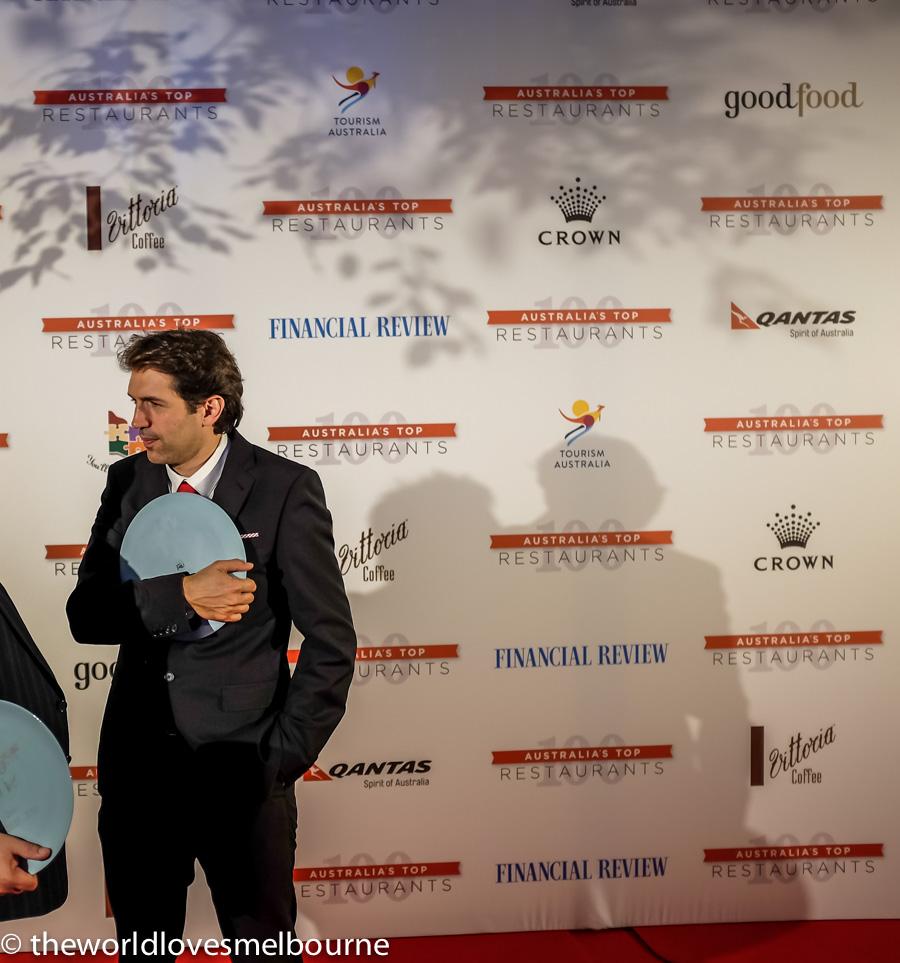
The World Loves Melbourne was privileged to interview legendary chef Ben Shewry of Attica restaurant (rated no. 32 in World's 50 Best Restaurants by S. Pellegrino). We have visited Attica twice in th elast few months for a world class dining experience without peer in Melbourne. Check out our Best Restaurants in Melbourne.
TWLM: How would you describe your culinary journey to become the chef you are today and what sparked your interest in becoming a chef?
Ben Shewry: I was 5 years old when I decided to be a chef. That was the age I was when I decided that’s what I wanted to do with my life. Which is unusual growing up in New Zealand in 1982 with not a lot of chefs on television or cookbooks around. We were living in a very isolated area and I can’t point to anything that really inspired me to do that.
I’m not sure why I made that decision at such a young age, other than I had a Grandmother Lois and a mother Kay, who both loved cooking. I’m sure they influenced me in some way.
From that point I planned on how to become a chef through my childhood, my life, and in everything that I did. I first set foot in a commercial kitchen when I was 10 years old and did work experience. I then had my first job at age 14 in a restaurant.
By age 16 I had started restaurant training through to age 18. So I was young the whole time as I launched out as a chef.
I worked in New Zealand until I was 25 years old, in good restaurants and not-so-good restaurants. Then moved to Australia with my wife Natalia in 2003 and I worked at a couple of restaurants as part of the journey.
At age 27 there was a turning point when we had our first child Kobe; this wonderful event and needs of my family required me to take a head chef position. So I responded to an advert in the newspaper for a head chef position at Attica. Ten years later I’m now the sole owner of Attica. And it’s been a hell of a journey!
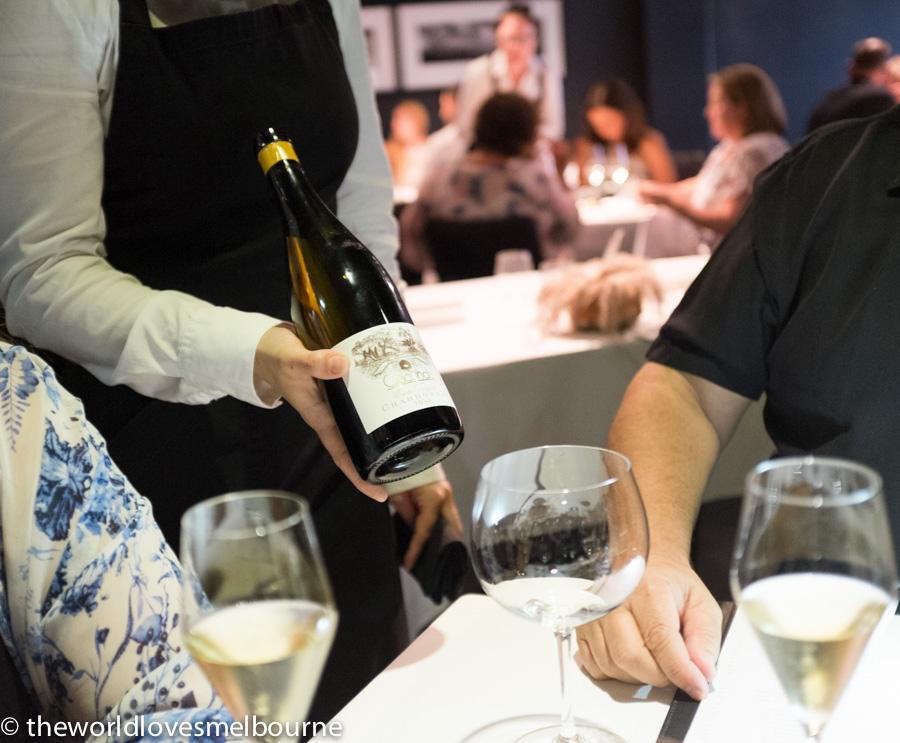
TWLM: How did you feel when you heard the news that Attica had been named among the World’s Top 50 restaurants?
Ben Shewry: When it was the first time 5 or 6 years ago when we made the top 100, at number 73 or 77, it was unexpected for me. It basically came “out of the blue”. I was “blown away”. It reduced me to tears. We were working so hard, but there was never a dream of this. I didn’t think anyone really knew about us.
It had been hard times business-wise during that time of the first recognition in the World’s Top 100. It was an incredible feeling actually. It was unbelievable!
I was ok when I got the letter but when I got to work to tell the staff, I just began to cry. I couldn’t express to them how grateful I was for everything that they’d done.
Then it’s actually different to be in the 20s or 30s of the Top 50 than in the 70s of the Top 100. The first year of being in the Top 50 was a very nice feeling as well. To be in London with all of my friends, it was a nice moment. It’s not the “be all and end all for sure” but it was a nice moment in the history of the restaurant.
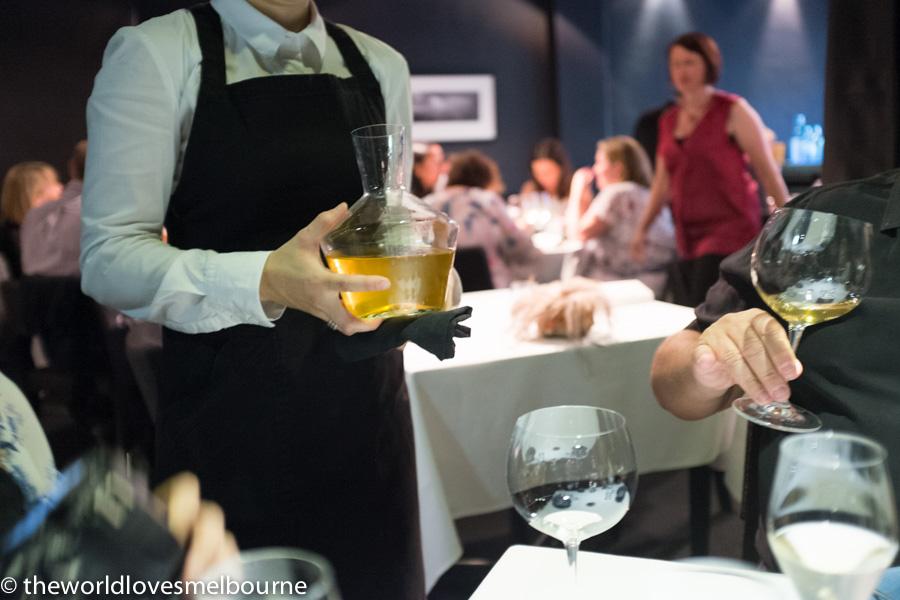
TWLM: Would you say you had a signature dish?
Ben Shewry: Not really. We have dishes we are known for but I feel with “signature dishes” that they can just “stick around”. People can have signature dishes, and I have no problem with that. But we leave dishes on the menu for a while only if people really like them, and only long enough for people to experience them. But when the dishes are gone from the menu they are gone forever.
We don’t have a culture of signature dishes as such; we are always trying to look forward into the future with our cooking. If you have dishes that stick around too long, it can be a problem.
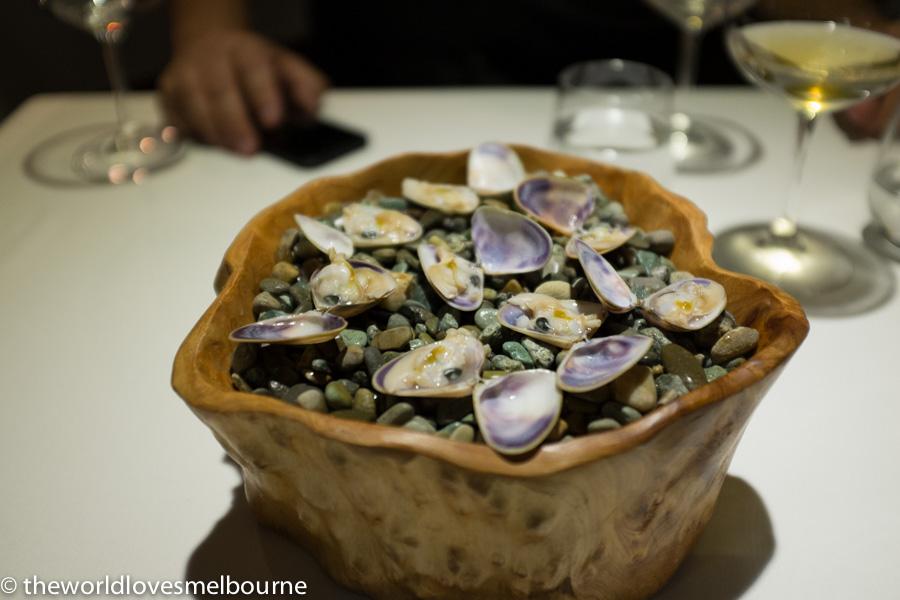
TWLM: Can you give an example of how you turn Australian native ingredients into captivating cuisine?
Ben Shewry: My history is that I came from New Zealand. Australia is my home but I’ve come from a place of “looking from the outside in”. It all started close to 8 years ago when a neighbour brought me some produce from across the Victorian/South Australian border. He brought me a fruit called quandong; one of the first native Australian fruits that I’d seen.
My neighbour brought me a large bag of quandongs and said, “Do you want these? Nobody wants them. Are you interested in them?” And I said, “Yeah, sure.” I took them and they were sour and quite dry and difficult to work with. It took some time for me to understand them.
There are lots of Australian native ingredients that people use everyday but don’t often realise it. For example our fish, and our shellfish are native. The mussels that we serve from Port Phillip Bay are specific to that bay.
Lots of the things we take for granted, that we use everyday in Australia, most people don’t think of as native Australian produce. People think that native Australian ingredients are only about unusual herbs or the native fruits. But it’s so much more than that.
King George Whiting is a native fish. Mud crabs are native. Spanner crabs are native. Macadamias are native.
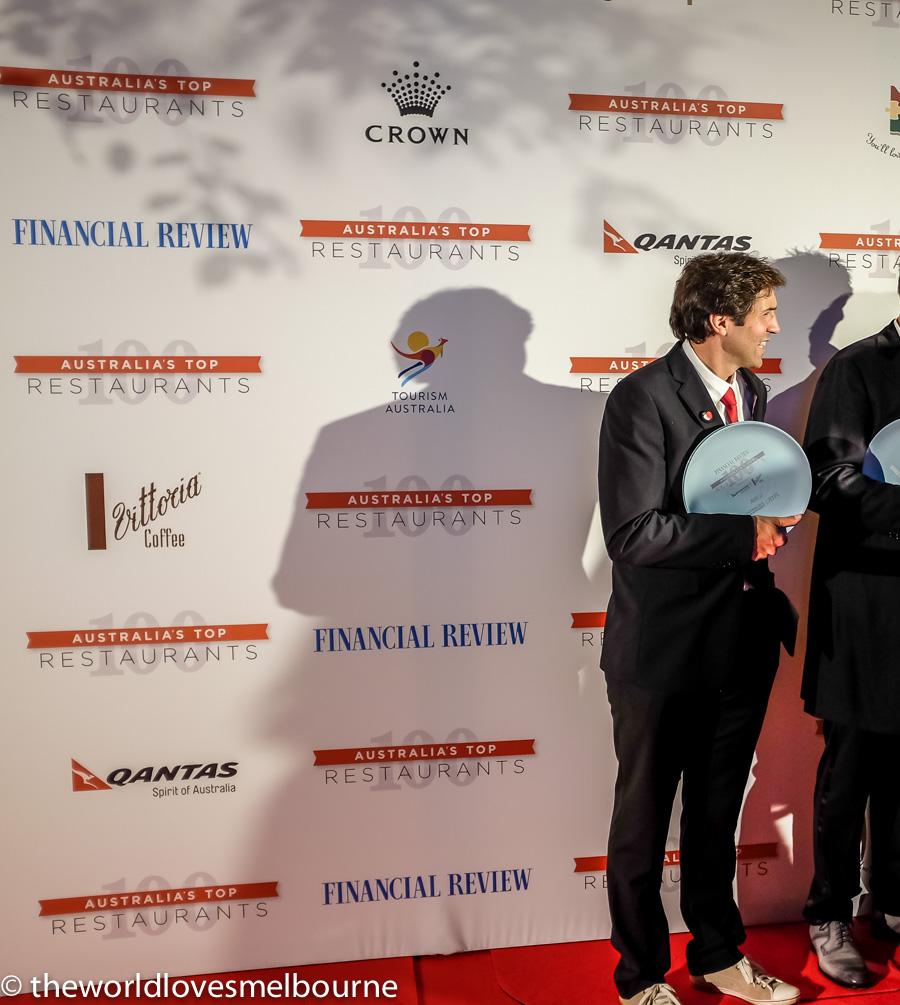
It’s interesting what people’s perception of native ingredients is. I’m aware most people have never eaten the native fruits of Australia.
I found native ingredients fascinating because they spoke about the land. Not of another country. I was trying to find out what it meant to be a cook in Australia. Without that strong heritage that other countries enjoy, and without that element of “regional specialties” that many counties enjoy, then how do you define our cuisine? I guess you start to cook with the native ingredients that are unique to Australia.
Cooking with native ingredients, if someone comes here from overseas for example, they can’t say it’s just like any other restaurant.
The way we cook at Attica is different, but the ingredients we use are very different.
Using native ingredients, you need to go about it the right way and not force it. And just using native ingredients for the sake of using them is not good enough either. The dishes have got to make sense in a delicious way. There needs to be education in cooking as native ingredients aren’t the easiest to work with. You need to harness the uniqueness of them. That takes a lot of time. You can’t just put them on a plate; frankly I think that’s kind of dumb.
When it comes to native ingredients you need to spend time and research them, and then understand them. Otherwise there’s no deep understanding or “soul” to them. If you put them on a plate its kind of just following a trend.
We’ve never been interested in any trends. I wouldn’t even know what the trends are. And I guess we’ve never been a trendy restaurant in that sense. We were never born out of fashion.
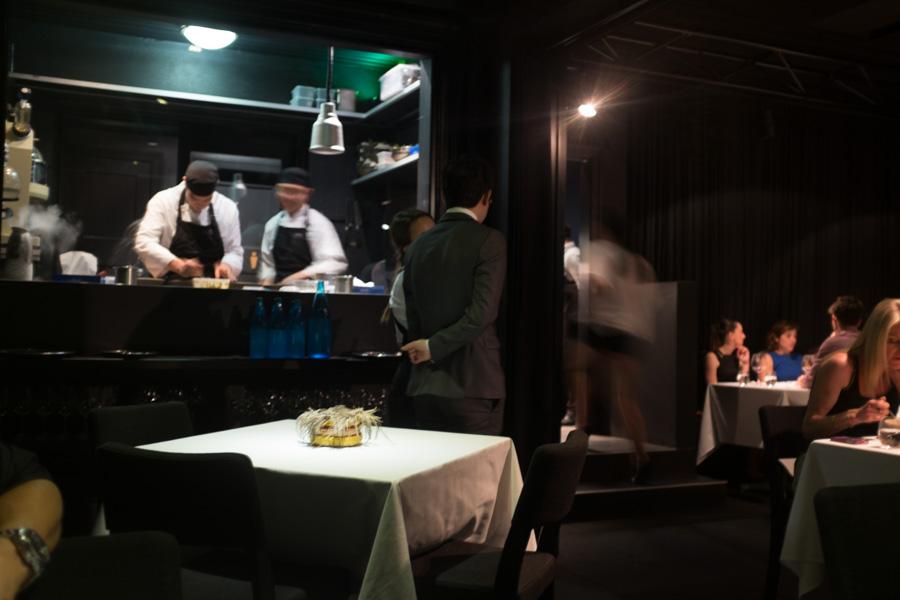
TWLM: But Ben you have ignited a trend?
Ben Shewry: One of the native ingredients we started using 8 or 9 years ago is Saltbush. Its now front and centre when it comes to native ingredients. I’d never seen Saltbush in a restaurant before I used it. Now you see it everywhere. A journalist friend came over from the States and said he’d eaten it all over the place. He said, “Saltbush is everywhere.” I said, “Well once it wasn’t!” It wasn’t overlooked by nature as various animals were eating it.
With Saltbush when I first began using it I felt it wasn’t automatically delicious. I found that by frying Saltbush it became delicious. I don’t know if I influenced other people into using Saltbush or not, but if I have it’s a good thing. We need to be aware of more of the striking natural ingredients we have in Australia.
TWLM: What would your last meal be and who would you eat it with?
Ben Shewry: I’d eat my last meal with my wife. She’s the most incredible human being that I know. She’s incredibly selfless and she’s incredibly kind. She would definitely be the person to eat my last meal with.
My last meal would be a piece of hard cheese. Any kind of good quality hard cheese. I would want to eat comté cheese from France! I also love a cheese called Emme Cheese from Hindmarsh Dairy in South Australia.
Just give me a great hard cheese and some bread, because I can still have a conversation with someone. If it was my last meal it would be very simple, and when I’m eating I always want to talk a lot.
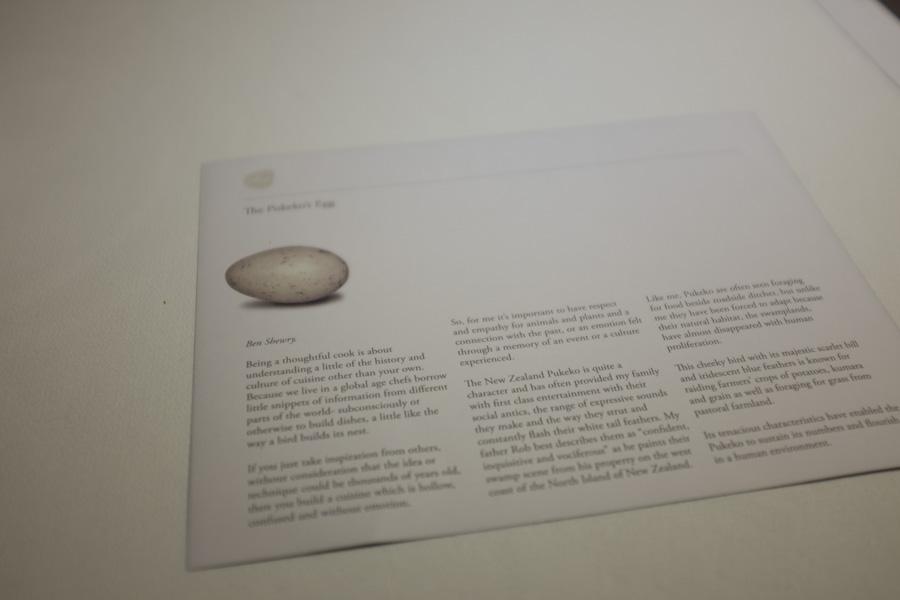
TWLM: Ben I heard at MFWF launch that you have a special love for fried rice…
Ben Shewry: I do. I have a real passion for fried rice. I’m a self-proclaimed fried rice connoisseur I’ve travelled the world looking for the perfect fried rice. It’s a very elusive thing to find.
There’s only a few that get it and can pull off fried rice. You can always find”ok” fried rice somewhere. For someone to take fried rice to another level is not common.
There are 3 things about amazing fried rice – the rice, the person seasoning it, and the quality of ingredients. It’s about simplicity; say with eggs and spring onions. The rice has to be cooked on the day; not the stale rice that a lot of people espouse.
Fried rice has to be freshly cooked. The rice needs to still have its fragrance. I don’t like it too heavily cooked in the wok. I like it light and clean and not lightly seasoned but “blond” in seasoning.
I had an incredible fried rice dish recently at Flower Drum in Melbourne. I ate that with Dan Hong. There’s also a secret place I go to in Geelong that has a great fried rice.
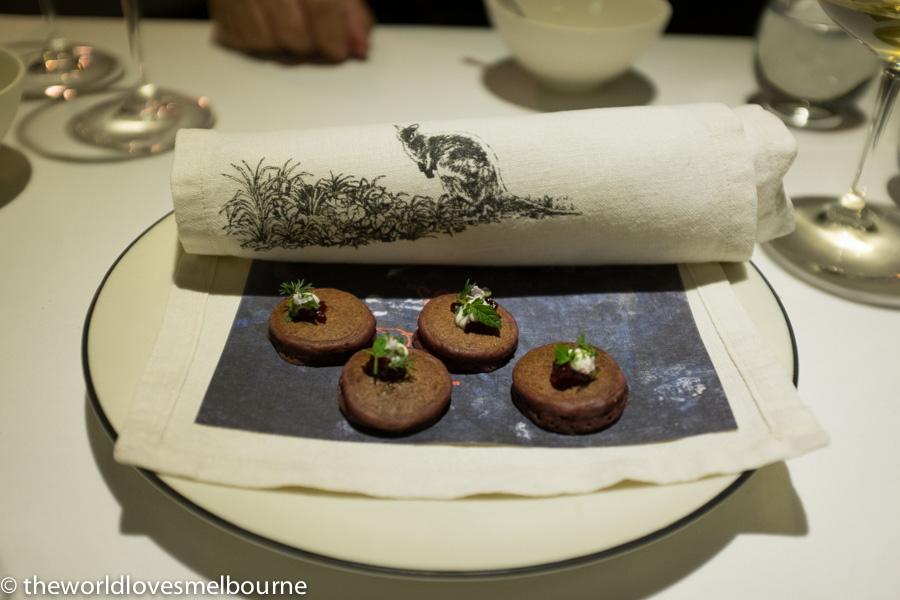
TWLM: Where do you find your inspiration in the kitchen?
Ben Shewry: All kinds of influences. I’ve always got an open mind to things. In this world today it’s easy to not listen enough.
Inspiration comes in many ways and not just from our industry. Lately I’ve been inspired by the band Yo La Tengo (American Indie Rock). For the last couple of years they’ve been an amazing inspiration. First and foremost their music is incredibly inspiring. And I’ve found inspiration in the way they carry themselves.
Creatively they’re remarkable. Yo La Tengo have been around for like 30 years. I’m interested in how they keep their connection with their fans and how they perform on stage live. It’s humbling to watch them live and see how powerful their performances are after all these years. Maybe even more powerful than ever.
There’s something to be learned there. At Attica every night we need to “get ourselves up” to “perform for our guests”. I’m interested in how long can you hold that passion. I’m still reasonably young. How many years am I able to put my heart and soul into this? There’s something to be learned from this band, who I’ve become friends with.
I’m inspired by how this band Yo La Tengo are respected. I’ve learned a lot about kindness through them as well.
For the last 4 or 5 years I’ve drawn inspiration from other areas than the cooking world. As an industry we don’t look outside our world enough.
TWLM: How does Chef Ben Shewry run one of the World’s Top 50 restaurants with three small children at home?
Ben Shewry: It’s a great challenge. Finding the balance between being a good father and being a good chef, mentor, business owner, is not an easy thing. If I’m being completely honest I’ve given a lot more to my restaurant than I have to my family in the past.
Now I want to strike a better life balance. Next year we plan to move closer to the restaurant, as we live a long way from Attica (currently a 1.5 to 2 hour commute each way daily).
I make the most of the small amount of time I do have with my family. Those key moments; I make them count. I don’t take those times for granted. We don’t sit and watch TV, we actually do something. I try to give my children some of the amazing experiences that I had as a child.
Attica is a demanding kind of business. Both my wife and myself are active in the business. She does the books. My wife is like the unsung hero of Attica. She is behind the scenes but makes what I do in Attica possible.
I’m conscious of the fact that your kids are only young once. As chefs you can feel a lot of guilt with what you’re doing. Sometimes you feel it’s a selfish thing to work the long hours and have the single minded commitment required.
There is something powerful in saying to your children “you should chase your dreams” and modelling that. Back yourself in and do what you love. I could be doing a job with a lot less hours but hate it and be a miserable father. Even though I’m not there as much as I’d like to be at least I’m a passionate Dad.
Overwhelmingly the experience is that it’s all worth it.
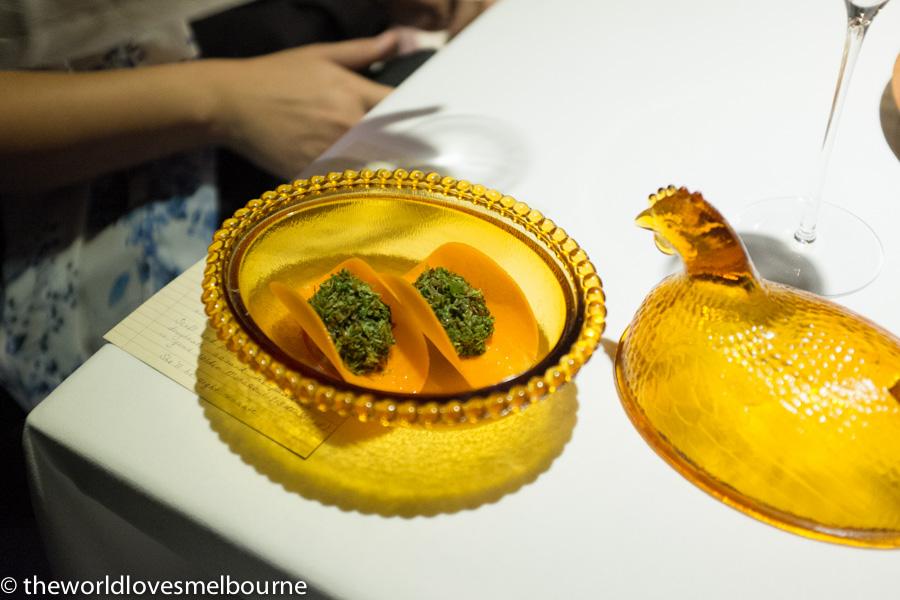
TWLM: What is behind your culture of innovation and the famous “test kitchen”?
Ben Shewry: Yes we’ve had the test kitchen process and Chef’s Table on Tuesdays for 6 or 7 years. That was borne out of the idea of how we would develop our cuisine. We didn’t have the resource back then that we do now. We didn’t have many customers on Tuesdays back then. So they were the two factors – developing the cuisine and attracting customers on Tuesdays.
Whether or not we’ll always have Tuesday Chef’s Table I’m not sure.
TWLM: What makes an evening at Attica a sublime experience?
Ben Shewry: For the staff and myself we try to make Attica to be more than just a business; we want it to be a community. We try to connect with people that come to Attica.
If you’re a guest and you’ve had a tough day, maybe an argument with your partner, or say your boss is giving you a hard time, then come to Attica for 3 or 4 hours and we can help you forget the worries of the world.
We try to treat people with the utmost respect. We don’t take people coming here to Attica for granted.
I think we’re sincere about what we do and we try to tell a story through the cooking. That story is partially about my own life.
We have 30 dedicated professional young staff at Attica who are committed to this culture. We try to hire good people, not jerks. We hire people who have a good heart, are hard working and who have a positive attitude.
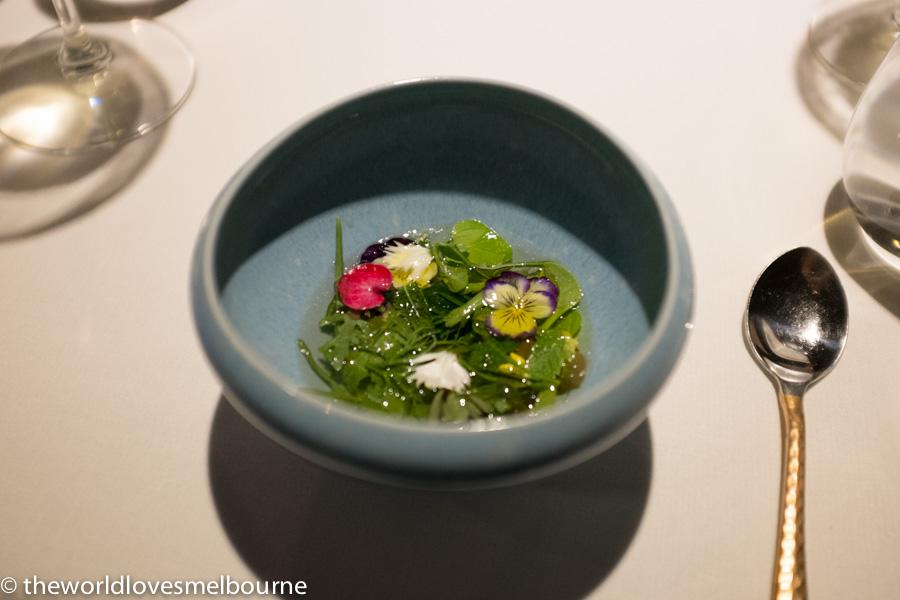
TWLM: How would you describe the current state of the Melbourne restaurant scene? Where do you go to eat?
Ben Shewry: I’m one of the worst people to ask this question. When I’m not at Attica I’m often at home. My favourite place to eat at a refined level is Brae. I had a great meal recently at Flower Drum; and another at Lee Ho Fook.
In terms of casual places, I just like to dine in somewhere like Footscray and eat Chinese or Vietnamese food. Sometimes I feel like a great hamburger and I enjoy going to Tuck Shop Take Away for a burger.
My chances to eat out are few and far between.
My take on the Melbourne food scene is that I wish more young chefs would get the opportunity to own their own restaurants. And that staff, waiters and sommeliers for example would also be able to get their own places. It feels like there’s been a decline in that in the last 10-15 years. And it makes me a little sad.
I’m passionate that the more hospitality people owning restaurants than just business people owning restaurants the better. And the more vibrant the scene would be.
The restaurant scene is unique. Say if you own a tyre shop. You have the cost of a tyre, the cost of your staff, your rent and other fixed costs. Those variables don’t change much. Restaurants are so much different to that. There are many complicated variables to add to the mix. It’s always hard to keep a handle on all of the costs. For example we have a large garden where we grow things, we harvest from the wild, we also have 200 different suppliers, as well as our 30 staff. It’s about people and passion rather than just a “we’re just here to make money” kind of business.
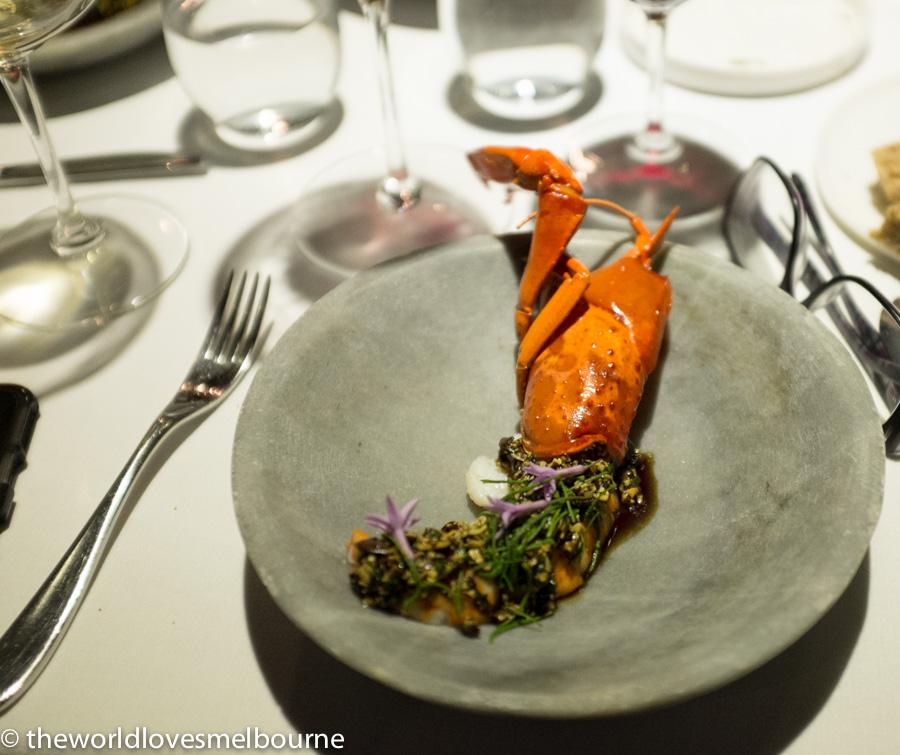
TWLM: What are your future plans for Attica?
Ben Shewry: Just to continue to improve in different areas. Opening up the kitchen is the next big thing as we renovate. That’s never been overhauled since we began. I’m really excited about rebuilding the kitchen.
Outside of Attica I don’t have any real plans to start anything else. We may do something in the future but our focus is on Attica.
TWLM: What is your cooking philosophy?
Ben Shewry: I buy into the natural ingredient being the hero. You have to start with the best ingredients but that’s not enough. The chef does have a strong role to play! If it was just ac case of buying and assembling the best ingredients then everybody would be doing it (becoming a chef). You have to have some unique thinking or have some creativity.
My philosophy of cooking is not making things worse than when they were raw. If we do something to an ingredient in the process, it has to taste better than before we started “mucking around” with it. Otherwise there’s no point. Not harming things and not making them worse than when they were when they were raw.
I often think to cooking of my childhood or eating simple things when I’ve travelled, say my first $1 taco in California, and how incredible that mouthful was. I’m always reminding myself, it has to be delicious! It can be interesting and challenging at times, but overall, the sensation from the meal should be that its really delicious.
Also it’s about following your own personal outlook on ingredients and cooking. It’s important not to just copy different trends and other chefs. It’s also important to never forget your heritage.
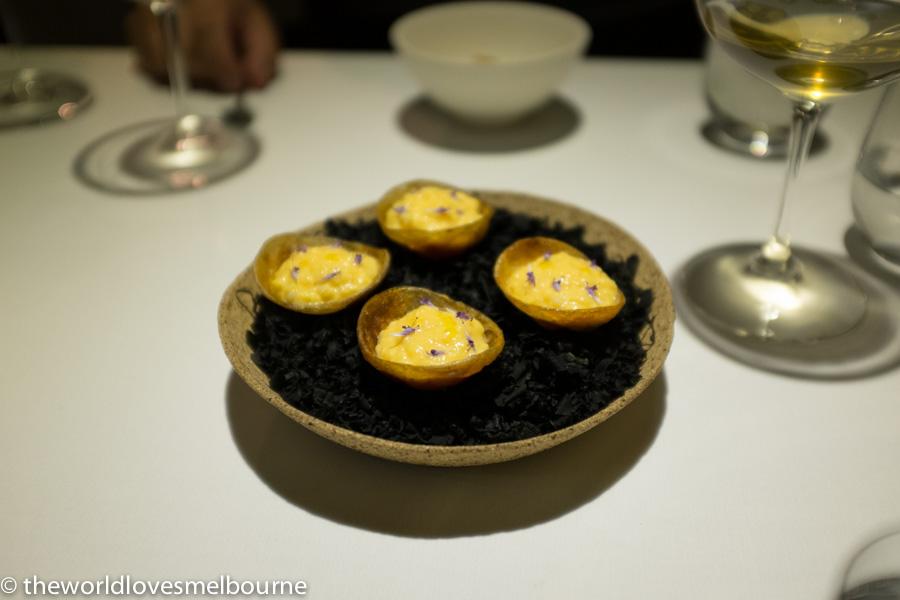
TWLM: What did it take to overcome the fact that at Attica, the use of ingredients native to Australia in a top restaurant was a new idea that was not widely accepted initially, making it difficult for the restaurant to garner a following?
Ben Shewry: I don’t consider my use of native ingredients to have been a risk at Attica. Before I arrived the restaurant had tried several approaches from pervious chefs that hadn’t worked, from Middle Eastern to French cuisine.
When I came to Attica I had seen what had been done and what had failed. I launched out with a new outlook on things. I wanted to be my own person and not follow others. I was taught that from a very young age. It was like a natural thing for me to cook this way.
Admittedly at the start there were probably people that didn’t love the cooking. But we were resilient enough or stubborn enough to keep pushing. We were thinking one day the tide would turn, and people would believe in the restaurant and start to enjoy it. That took a while; longer than what we would have liked.
But hey, I wouldn’t change that part for anything in the world. If you’ve been through some hard times then you can appreciate the good times. If you only have good times then how can you appreciate what true happiness is? If you’ve suffered somewhat then you’ve been through a valuable experience. And if you have overcome and haven’t let the hard times define you, then the feeling that comes afterwards is wonderful.
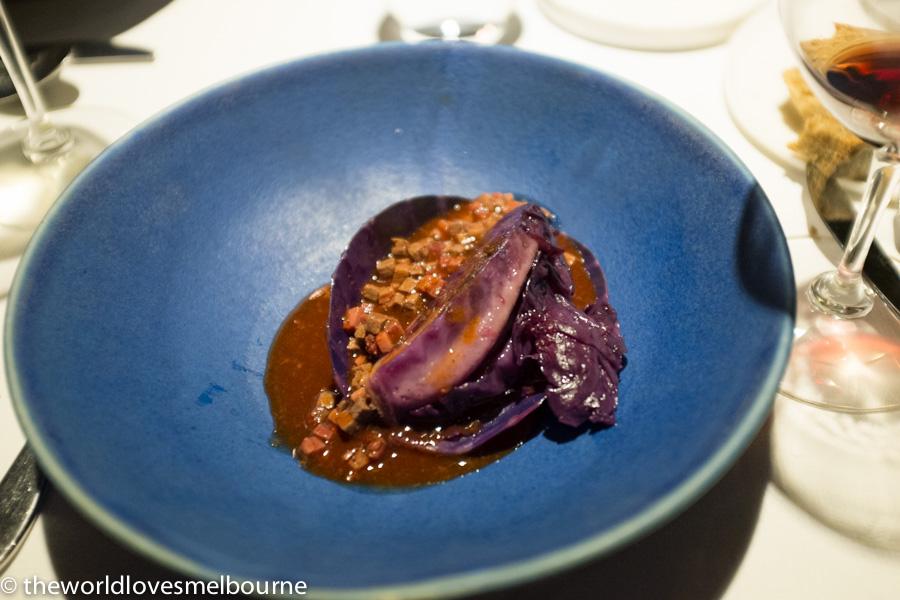
TWLM: Eventually, your unorthodox style of cooking was recognized by locals and critics, and today Attica has received several prestigious awards and attracts top chefs from around the world. Where will you go from here?
Ben Shewry: I just want to keep evolving and try new things. The biggest challenge for us is to continue to find new ingredients and quality ingredients. A challenge is to find new farmers in a country as vast as Australia is; it’s difficult.
We want to continue to find better and better and better ingredients and work with them in new ways. We want to develop more and I want to continue to guide the team and push the whole thing, as see how far we can go.
Thanks Ben for your time and offering so much of yourself…
Please see my article on Ben Shewry on global food site Foodiehub.
